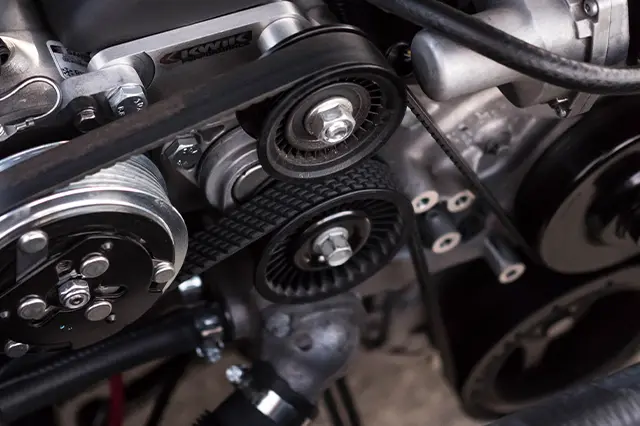
What Does An Engine Mechanic Do? A Guide To Automotive Professionals
Whether you’re an auto enthusiast looking to break into the automotive repair industry or simply curious about the responsibilities of a professional engine mechanic, this article is for you. We’ll discuss what an engine mechanic does, from diagnostics and repairs to troubleshooting and maintenance. We’ll also provide insight into the different job roles in the automotive industry and how you can get started if this sounds like something you might be interested in pursuing. By the end of this guide, you should have a better understanding of what it takes to be a professional engine mechanic and other automotive professionals.
What is an engine mechanic?
An engine mechanic is a highly trained automotive professional who specializes in the care and maintenance of engines. Engine mechanics are responsible for the diagnosis, repair, and preventive maintenance of engine systems in automobiles, trucks, and other vehicles. They use a variety of tools and testing equipment to troubleshoot and repair engine problems.
Engine mechanics must have a thorough knowledge of engine systems, including fuel injection, ignition, and emissions control systems. They must be able to identify and correct engine performance problems. In addition, they must be familiar with the operation of different types of engines, such as gasoline, diesel, or electric motors.
Most engine mechanics work in auto dealerships or repair shops. Some are employed by manufacturers to work on engines at the factory level. Some engine mechanics are self-employed and work out of their own shops.
The job outlook for engine mechanics is good. Employment is expected to grow about as fast as average for all occupations through 2025.
To become an engine mechanic, you must have a high school diploma or equivalent and complete formal training in automotive technology at a technical school or community college. It is also important to have good mechanical aptitude, as well as strong problem-solving and troubleshooting skills.
What does an engine mechanic do?
An engine mechanic is responsible for the maintenance and repair of engines in automobiles. They diagnose problems, replace and repair parts, and perform tune-ups.
An engine mechanic’s job is to keep engines running smoothly and efficiently. They do this by diagnosing problems, replacing and repairing parts, and performing regular tune-ups.
Engine mechanics must have a strong knowledge of engine systems and how they work together. They use this knowledge to troubleshoot problems and determine the best course of action for repairs. Mechanics also need to be well-versed in the use of tools and machinery, as they often need to fabricate or modify parts to properly fit an engine.
excellent communication skills are essential for engine mechanics. They need to be able to explain complex technical problems to customers in a way that is easy to understand. Mechanics also need to be able to work well with other technicians in order to get the job done efficiently.
The different types of engine mechanics
The engine is the most important part of a car, and it’s the engine mechanic’s job to keep it running smoothly. There are three main types of engine mechanics: those who work on gasoline engines, diesel engines, and electric motors.
Gasoline engines are the most common type of engine, and they’re found in most cars on the road today. Diesel engines are more powerful and efficient than gasoline engines, and they’re typically found in larger vehicles like trucks and buses. Electric motors are becoming more popular in cars, and they offer a cleaner and more efficient alternative to gas-powered engines.
Engine mechanics must have a thorough understanding of how engines work in order to diagnose and repair them properly. They use a variety of tools to test engine components and identify problems. Once they’ve diagnosed the problem, they can often fix it without having to replace any parts.
If you’re interested in becoming an engine mechanic, you’ll need to complete a formal training program at a trade school or community college. Many employers also require certification from the National Institute for Automotive Service Excellence (ASE).
The pros and cons of being an engine mechanic
An engine mechanic is a highly skilled automotive professional who specializes in the maintenance and repair of car engines. As with any career, there are both pros and cons to being an engine mechanic.
On the plus side, engine mechanics are in high demand and can command good salaries. They also get to work on a variety of different cars, which can be interesting and challenging. In addition, most engine mechanics have regular hours and don’t have to work weekends or evenings.
On the downside, engine mechanics can be exposed to harmful chemicals and fumes. They also have to deal with dirty, greasy engines on a daily basis. In addition, engine mechanical work can be physically demanding, and it’s not uncommon for mechanics to experience back pain or other injuries.
How to become an engine mechanic
There are two ways to become an engine mechanic: either through a formal education at an automotive training school or by completing an apprenticeship with a qualified mechanic.
A formal education will provide you with the theoretical knowledge and practical skills necessary to work as an engine mechanic. Most programs will include coursework in engine repair, transmission repair, fuel injection systems, and computerized engine control systems. Many schools also require students to complete an internship before graduation.
An apprenticeship is another way to learn the trade and gain experience working as an engine mechanic. Apprenticeships typically last three to four years and combine on-the-job training with classroom instruction. During an apprenticeship, you’ll work under the supervision of a qualified mechanic and learn all aspects of the job, from diagnosing problems to performing repairs.
No matter which route you choose, becoming an engine mechanic requires a strong commitment to learning the trade. With hard work and dedication, you can build a successful career in this exciting field.
Conclusion
We hope this guide to automotive professionals has helped you understand the different roles they can play in maintaining your car. From engine mechanics who keep your vehicle’s power running smoothly, to auto body specialists who help restore its original beauty, these skilled and knowledgeable individuals are essential for keeping your car in excellent condition. When it comes time for any repairs or maintenance, make sure you find a reputable and experienced professional that you can trust with all of your automotive needs.
